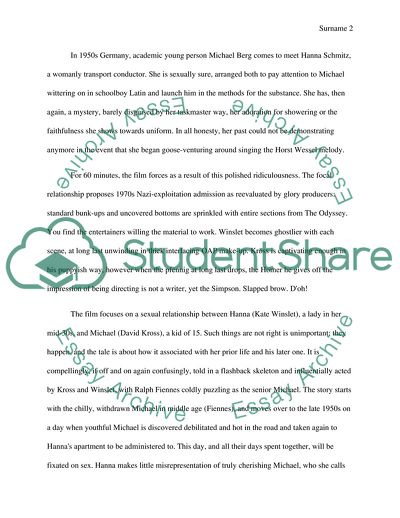Cite this document
(The Analysis of 'The Reader' Movie Review Example | Topics and Well Written Essays - 1750 words, n.d.)
The Analysis of 'The Reader' Movie Review Example | Topics and Well Written Essays - 1750 words. https://studentshare.org/visual-arts-film-studies/1852924-the-reflection-paper-of-the-reader-2009
The Analysis of 'The Reader' Movie Review Example | Topics and Well Written Essays - 1750 words. https://studentshare.org/visual-arts-film-studies/1852924-the-reflection-paper-of-the-reader-2009
(The Analysis of 'The Reader' Movie Review Example | Topics and Well Written Essays - 1750 Words)
The Analysis of 'The Reader' Movie Review Example | Topics and Well Written Essays - 1750 Words. https://studentshare.org/visual-arts-film-studies/1852924-the-reflection-paper-of-the-reader-2009.
The Analysis of 'The Reader' Movie Review Example | Topics and Well Written Essays - 1750 Words. https://studentshare.org/visual-arts-film-studies/1852924-the-reflection-paper-of-the-reader-2009.
“The Analysis of 'The Reader' Movie Review Example | Topics and Well Written Essays - 1750 Words”. https://studentshare.org/visual-arts-film-studies/1852924-the-reflection-paper-of-the-reader-2009.


